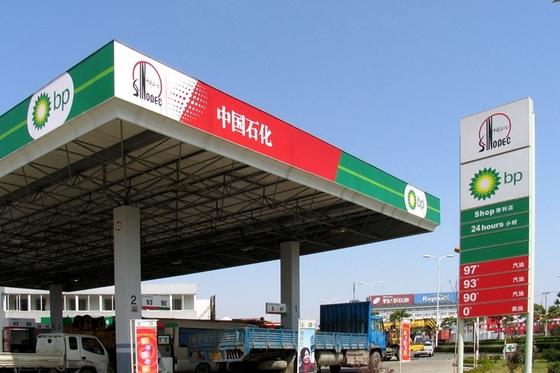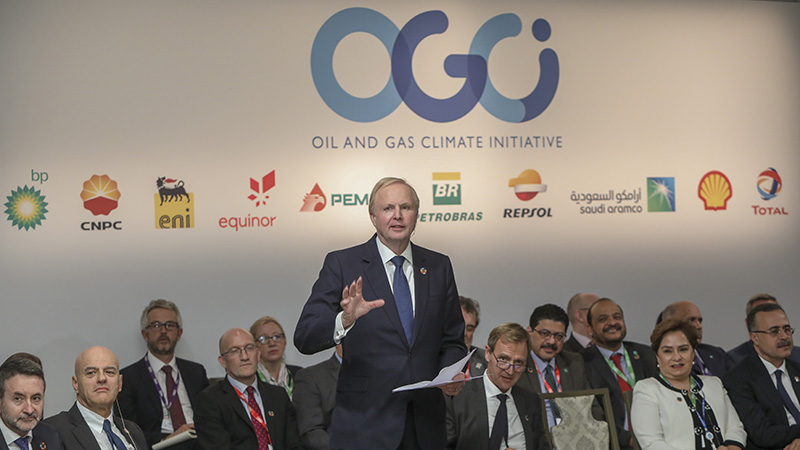Implementing low carbon strategy for energy transition
2019-10-31GoldenBeeYang Xiaoping0

Yang Xiaoping, President of BP China and Chairman of BP (China) Investment Co., Ltd.
"In the future, we will continue to take root in the mainland China and push forward the development of energy industry. We are committed to becoming a reliable partner in China's energy sector and contributing to the realization of the national sustainable development strategy and goals."
As a century old company in the energy field, BP entered China in the early 1970s. It is one of the first foreign-funded enterprises to participate in China's economic construction. In the past 46 years, BP has progressed with the development of China's economic development and modernization, witnessing the whole development process of China's petrochemical industry from starting up, continuous development to gaining worldwide attention.

BP leaves a solid footprint on the development course of China's petrochemical industry. BP is the first foreign-funded company to sign a maritime bidding contract with China and the first foreign-funded company to take part in the construction of LNG terminal in China. BP has built one of the largest and most efficient PTA production bases in China.
As an important participant in China's energy industry, BP has been working with partners for many years to ensure the rapid rise of China's basic industries and the remarkable improvement of people's living standards. Looking ahead, China's energy industry faces both opportunities and challenges for sustainable development.

On the one hand, the Chinese government attaches great importance to the green and low-carbon development of the energy industry, and promotes the continuous improvement and transformation and upgrading of the energy structure. BP Statistical Review of World Energy 2019 shows that over the past year, China's natural gas consumption has increased by 18%. The proportion of coal in the primary energy structure has dropped from 72% ten years ago to 58% now, and non-fossil energy such as solar power, wind energy, biomass energy and geothermal energy are all growing. On the other hand, in order to support the sustainable growth of China's economy and reduce the poverty-stricken population set in Sustainable Development Goals, we still need more energy, and carbon emissions will continue to increase. The challenge of sustainable development in the energy industry is still very severe.
In response to the dual challenges of continuous energy demand increase and carbon emissions reduction, BP takes the low carbon development as the core strategy, and actively explores the green future of "Advancing Low Carbon", helping China's green, low-carbon and sustainable development.
Firstly, we actively promote our low-carbon transformation, and have put forward a low-carbon development strategy of "reducing-optimizing-exploiting", to continuously reduce carbon emissions in production and operation, improve products and services, and create low-carbon business. The bonus of 36,000 employees has been linked to BP's progress in reducing carbon emissions.

Secondly, we call for cooperation among partners to lead the low-carbon development of the industry. As one of the founding members of the Oil and Gas Climate Initiative (OGCI), BP vigorously promotes the establishment and development of the new low-carbon economy business model and actively participates in China's carbon emissions trading.
Finally, we actively develop clean and renewable energy sources. BP actively participates in the construction and development of China's natural gas market, and leads innovation and exploration in the field of renewable energy, playing an active role in winning the battle for blue skies and promoting energy transition.
(The Chinese version of this article is published on China Sustainability Tribune)
(Images in this article are from the Internet)
Best Practices
- The 100-year brand — Air Liquide also has a sense of juvenile
- Beijing Public Transportation Corporation: Developing green transportation to build a harmonious and livable capital
- CGN: Building a modern factory in barren deserts and developing a new win-win cooperation model along “Belt and Road”
Upcoming Event

All the materials on the site “Source: XXX (not from this site)” have been reprinted from other media. They do not imply the agreement by the site.
All the materials with “Source: CSR-China Website” are the copyright of CSR-China Website. None of them may be used in any form or by any means without permission from CSR-China Website.
GoldenBee Official WeChat
Copyright © Csr-china.net All Right Reserved.
京ICP备19010813号










